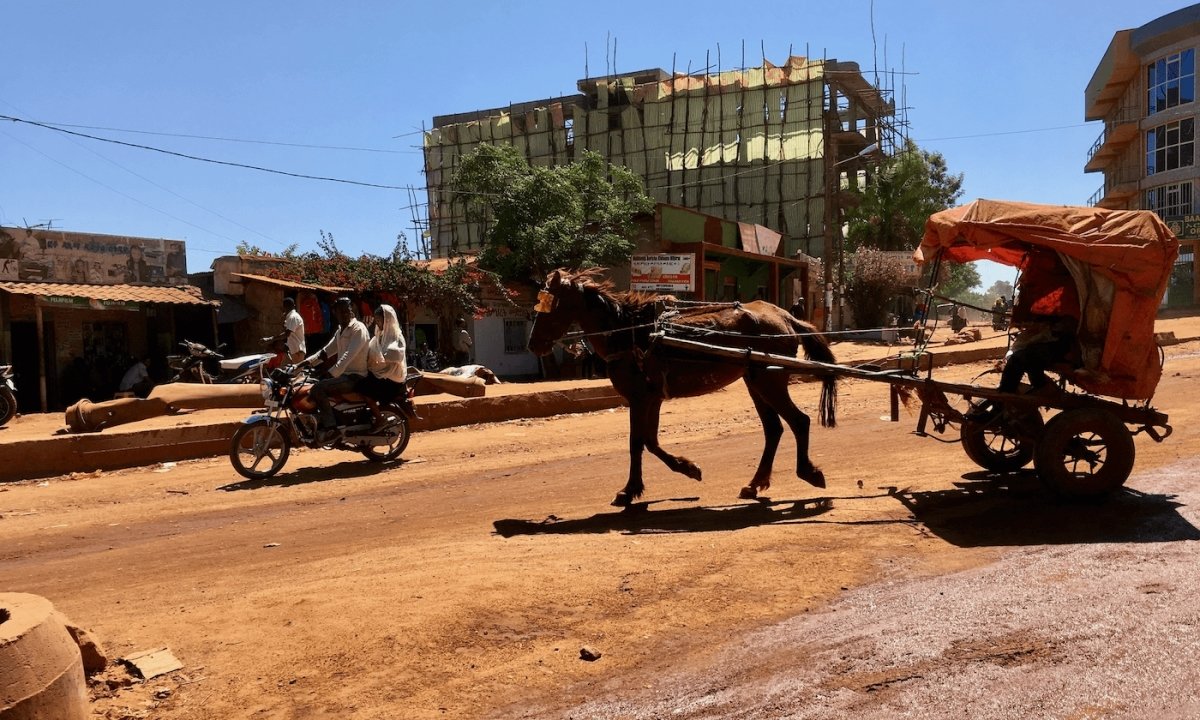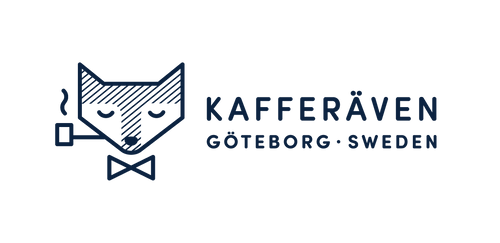Etiopien

Vi är glada att återigen ha massa gott kaffe från Etiopien i rosteiret.
Allt etiopiskt kaffe vi köper kommer via Heleanna Georgalis, hon är exportör och producent. Delar av kaffet kommer från hennes egna process-stationer och hennes gård i Sheka, samt andra lotter från producenter som hon jobbar direkt med i sin exportfirma Moplaco. Senast vi besökte Etiopien var i februari 2020 och i somras fick vi en återträff med Heleanna på World of Coffee i Milano.
Nu när kaffet har kommit tog vi ett snack med Heleanna och frågade henne om årets skörd och läget i Etiopien.

Per: We first met on a trip I took to Ethiopia in 2010. We started to buy your coffee through an exporter when we were starting up the roastery. It was a natural from Yirgacheffe that we just called ”Heleanna”. Many of our customers still ask when this coffee will return to our offer list! Since 2018, we have been buying directly from you and your export company Moplaco. As we are buying much more than one coffee, we no longer call it Heleanna, but rather name the coffee from the place it's grown.

Per: Can you tell us a bit about this years crop. If I remember correctly, the crop was small but quality was high. What caused the small crop?
Heleanna: Well there is cyclicality of course, but this year it was due to the weather causing havoc. There were not enough rain, and not enough sunshine at the right time, so coffee did not grow properly. Most coffee beans remained green, and in addition when they started turning red, we realized that these beans had no density due to the lack of nutritions and water. So we had many many floaters and cleaning this coffee was a nightmare. For the first time I also saw many quakers in washed coffee.
Per: Prices this year are higher than previous years. This is true for all origins but in Ethiopia more than others. Can you explain why?
Heleanna: This year was not a coffee year for Ethiopia. Every year we are dealing with exporters who also have an interest in importing. They pushed the prices to such unreasonable levels that has never been seen before, as they thought they would be using 100% of their USD (US dollars) for import. The law changed after that and the Government said that they could only use 30% off their USD. So after prices went crazy they pulled out.
But you also need to know that the Government is almost drunk with the kind of USD earnings they've received from coffee, so now there's no turning back. They want the prices to be as high as possible for the farmers too. So we must all adjust to the new normal.
Per: Besides being an exporter you also run several washing stations and drying stations. How many do you have and how long have you had each one?
Heleanna: Two washing stations, one in Sidamo Bensa Segera, and a new one in Yirgachefe/GEDEB-Chelbesa. In Sidamo it is called Logita from one of the Rivers of Sidamo called Logita. Bensa is a district in Sidamo. Segera is the village that is located around the station.

Per: This year, we bought coffee from Sheka for the first time. What can you tell me about this area, and why you are working here?
Heleanna: I found Sheka by chance in 2017, after 10 years of searching for a land to invest in coffee. I fell in love with the area, the lush forest that is the last indigenous forest of Ethiopia. Coffee potential is high as the area is still green, and run through by great rivers. Altitude goes from 1700 to 2100 masl, there is very high rainfall of about 2500mm per year and brown soil that is rich in hummus.
Per: We bought washed Sheka Kawokaminafome - what does the last part stand for? This lot, can you tell us about the pulping, fermentation and drying stages in the post harvest process?
Heleanna: Kewo is the village where we are located and Kamina is the name of an animal we found, but I cannot remember which one :-)
The washed coffee we produce by using an old handpulping machine that we got from the previous owner and we ferment the coffee in old cement tanks. It is a very amateurish process but gives us excellent results. Coffee ferments in these water tanks for about 36 hours. Simple but effective. Again it is not us, but rather the gift of Ethiopia. I am sure if we applied the same ways in Central America the result would not be as good.

Per: Other lots we bought this year come from Kaffa, Guji, Harrar and they are not from your station. Vertical integration is a term used about how some coffees are traded in Ethiopia. Can you explain what Vertical Integration means?
Heleanna: Yes, it is the fact that we can make an agreement to buy coffee directly from a washing station.
Per: Do you usually buy from the same stations or does it change from year to year?
Heleanna: Till now we have had stable agreements with the same people.
Per: This is the first time we buy coffee from Harrar! If I remember correctly, this is the region where your company Moplaco first started to work and Harrar is your speciality. What is so special with Harrar as a region according to you?
Heleanna: Well we are born and raised there and we love this area. It is so unique compared to the rest of the coffee regions, as it is dry, and terraced just like Yemen. People are a friendly mix of Arab, Turkish, Indian and the local people. Of course chat is nowadays affecting people very much and that is a shame.

Per: What is the traceability fo this coffee we got?
Heleanna: The woman I am sourcing from is Called Razia, and the coffee is from Messela in East Harar. Razia collects the dried beans from the farmers. I do not know how many farmers she is buying from.
Per: Looking forward, what is your prediction of the harvest to come, in terms of quality, quantity and time of harvest?
Heleanna: Well, usually by this time of the year I start traveling, but knowing about the trouble and the announcement of the war with the North I have not travelled yet. So all I can say with certainty is that the coffee cherries are ripe too early this year. In Sheka we have collected 26 thousand kgs by now, that has never happened before. Harvest will start in September, but very slowly and by this time we usually would have harvested max 5000 kgs of cherry. Also in Yirgacheffe the coffee seams to be maturing quickly.

Vi avslutar här och tackar Heleanna för hennes tid, hennes kunskap och såklart, allt hennes goda kaffe.



